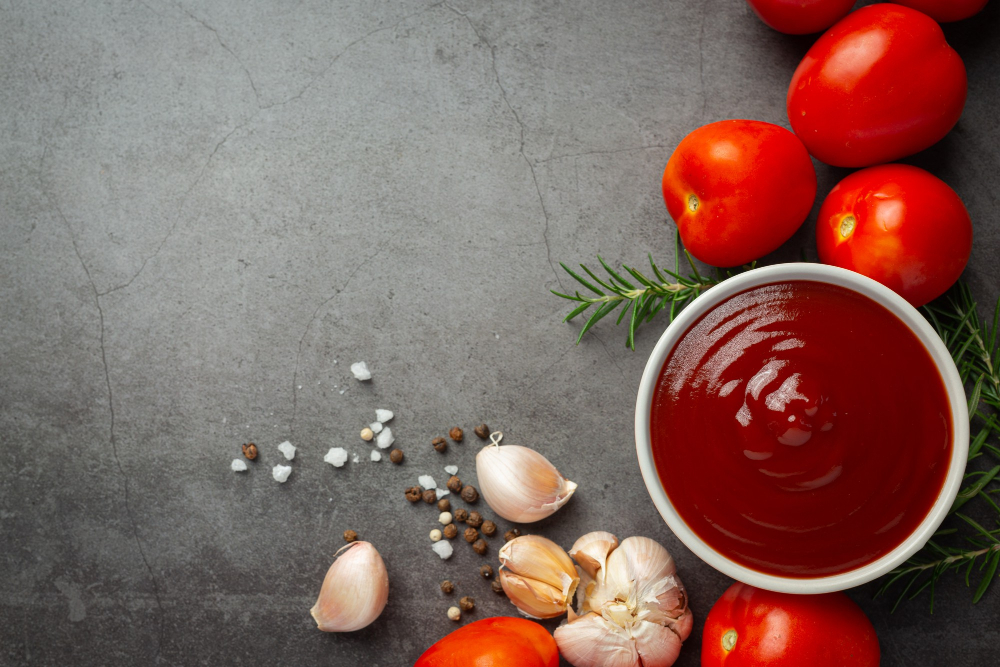What is a good marinade base?
Marinades are an essential component of many delicious dishes, adding flavor, tenderness, and moisture to meats, fish, and vegetables. A good marinade base serves as the foundation for creating mouthwatering marinades that enhance the taste of your favorite foods. While there are countless variations of marinade bases, understanding the key elements can help you create the perfect marinade for your next culinary creation.
The role of a marinade base
A marinade base serves as the starting point for developing a flavorful marinade. It acts as a carrier for various ingredients such as herbs, spices, acids, and oils, infusing them into the food to be marinated. The primary purpose of a marinade base is to enhance the taste, texture, and juiciness of the food, while also tenderizing tougher cuts of meat or fish.
Key components of a marinade base
There are several key components that make up a good marinade base:
- Acid: This can be in the form of citrus juice (lemon, lime, or orange), vinegar, wine, or even yogurt. Acids help to break down proteins, resulting in more tender and flavorful meat or fish. They also act as a flavor enhancer.
- Oil: Oil helps to keep the food moist during the marinating process and adds richness to the overall flavor. Olive oil, vegetable oil, or even sesame oil can be used, depending on the desired taste profile.
- Flavorings: Herbs, spices, garlic, ginger, and other aromatics are essential flavor enhancers in a marinade base. They add depth and complexity to the overall taste of the dish.
- Salt: Salt not only enhances the flavor but also helps in tenderizing the meat or fish. It also helps to draw out moisture, allowing the marinade to penetrate deeper into the food.
- Sweetener: A touch of sweetness, such as honey, maple syrup, or brown sugar, can balance out the acidity and add a subtle caramelized flavor to the marinade.
Experimenting with marinade bases
One of the beauty of marinades is their versatility, allowing you to get creative and experiment with different flavors. You can modify the marinade base by adjusting the ratios of the components based on personal preferences and the specific dish you are preparing.
“Marinades are like a blank canvas, ready to be transformed into a masterpiece of flavors.” – Chef John Doe
Here are some popular marinade bases to get you started:
| Base | Acid | Oil | Flavorings |
|---|---|---|---|
| Classic Mediterranean | Lemon juice | Olive oil | Garlic, oregano, thyme |
| Asian-inspired | Soy sauce | Sesame oil | Ginger, garlic, chili flakes |
| BBQ-style | Ketchup | Vegetable oil | Smoked paprika, Worcestershire sauce, brown sugar |
Remember, the marinade base sets the stage for the overall flavor profile of your dish, so feel free to experiment and tailor it to your liking. Whether you prefer tangy and bright or savory and bold, a good marinade base is the key to taking your culinary creations to the next level.
What is BBQ Marinade Made Of?
When it comes to barbecuing, a good marinade can make all the difference in enhancing the flavor of your meat. BBQ marinades are typically made from a combination of ingredients that add a depth of flavor and help tenderize the meat. While there are countless variations of marinades, they usually consist of the following key components:
Liquid Base:
A liquid base is often used to provide moisture and carry the flavors throughout the meat. Common choices for a liquid base include oil, vinegar, citrus juice, beer, or even soda. These liquids help to break down the fibers in the meat and infuse it with flavor.
Acidic Component:
An acidic component helps to tenderize the meat by breaking down its proteins. This can be achieved using ingredients like lemon juice, lime juice, wine, or even Worcestershire sauce. The acidity also helps to balance out the richness of the meat.
Flavor Enhancers:
To add depth and complexity to the marinade, flavor enhancers are essential. These can include ingredients such as soy sauce, Worcestershire sauce, garlic, ginger, honey, mustard, or various herbs and spices. These components contribute different flavors, making each marinade unique.
Salt and Sweetness:
Salt and sweetness are crucial in a marinade to enhance the overall taste. Salt helps to penetrate the meat, improving its texture and taste. Sweetness can come from ingredients like brown sugar, honey, or even fruit juices. It balances out the flavors and provides a hint of caramelization when cooked.
Marinating times can vary depending on the type of meat. For example, poultry usually requires 1-2 hours, while tougher cuts of beef or pork may need to marinate overnight.
Experimenting with different marinade recipes allows you to customize flavors to your liking. Here’s a simple BBQ marinade recipe to get you started:
| Ingredients | Amount |
|---|---|
| Olive oil | 1/2 cup |
| Soy sauce | 1/4 cup |
| Lemon juice | 2 tablespoons |
| Garlic | 2 cloves, minced |
| Brown sugar | 2 tablespoons |
Combine all the ingredients in a bowl and whisk together until well combined. Marinate your choice of meat for at least 1-2 hours or overnight in the refrigerator before grilling for maximum flavor.
Remember, a good marinade not only adds flavor but also helps to tenderize and moisten your meat. With endless possibilities, exploring different combinations of ingredients will undoubtedly elevate your next barbecue experience.
What liquid is best for marinade?
Marinades are a fantastic way to add flavor and tenderize meat, but choosing the right liquid can be a bit overwhelming. The liquid you choose as a base for your marinade can greatly influence the taste and texture of your dish. Here are some popular options to consider:
1. Beer
Beer is a classic choice for marinades, especially in the UK where it’s often used in traditional dishes. The carbonation in beer helps to tenderize the meat, while the hops and malt add a unique flavor. Try using a lager or ale for a milder taste, or experiment with different types of beer to create a customized marinade.
2. Citrus Juices
Citrus juices such as lemon, lime, and orange are excellent choices for marinades. The acidity in these juices breaks down proteins in the meat, making it more tender. Additionally, the bright, tangy flavors of citrus complement a wide range of meats and can help to balance out rich or fatty flavors.
3. Wine
Wine adds depth and complexity to marinades, making it a popular choice for special occasions or when you want to elevate a humble dish. Red wines like Merlot or Cabernet Sauvignon work well with red meats, while white wines like Chardonnay or Sauvignon Blanc pair nicely with poultry and fish.
4. Soy Sauce
Soy sauce is a staple in many marinades, particularly in Asian cuisine. Its umami-rich flavor adds depth and complexity to the dish. Additionally, soy sauce contains enzymes that help to tenderize the meat while infusing it with a savory taste.
Remember: Marinades work best when ingredients complement each other. Don’t be afraid to combine different liquids, such as beer and citrus juice, for a unique and delicious marinade.
“The liquid you choose as a base for your marinade can greatly influence the taste and texture of your dish.”
If you’re looking for some ideas to get started, here are a few popular marinade recipes:
- Beer and Worcestershire marinade for steak
- Orange and ginger marinade for chicken
- Red wine and rosemary marinade for lamb
- Soy sauce and honey marinade for salmon
The key to a successful marinade is to allow enough time for the flavors to penetrate the meat. For tender cuts, marinate for at least 30 minutes, while tougher cuts may benefit from marinating overnight. Just be sure not to marinate seafood for too long, as the acid can start to “cook” the delicate flesh.
Next time you’re firing up the grill or prepping a roast, experiment with different liquids to create a marinade that suits your taste buds. The possibilities are endless, and you’ll be rewarded with deliciously flavorful meat.
Which vinegar is best for marinade?
Introduction
When it comes to marinating meat, vinegar plays a crucial role in enhancing the flavor and texture. Vinegar helps to tenderize the meat and adds a tangy and acidic taste to the marinade. However, with so many different types of vinegar available, it can be difficult to determine which one is best for your marinade. In this article, we’ll explore some popular options and discuss their unique qualities.
Balsamic Vinegar
Balsamic vinegar originates from Italy and is known for its rich, sweet flavor and thick consistency. It is made from grape must and aged in wooden barrels, which gives it a complex taste. Balsamic vinegar works well with marinades for poultry, red meat, and vegetables, adding a delightful sweetness to the dish. It pairs particularly well with dishes that include fruits, like strawberries or peaches.
Apple Cider Vinegar
Apple cider vinegar is made from fermented apple juice and has a slightly fruity and tangy taste. It contains a natural sweetness and a subtle apple flavor. This type of vinegar is versatile and complements a variety of meats, including pork, chicken, and fish. Its acidity also helps to tenderize tougher cuts of meat.
Red Wine Vinegar
Red wine vinegar is made by fermenting red wine, resulting in a robust and tangy flavor. It is often used in Mediterranean cuisine and is perfect for marinating red meat, such as beef or lamb. The acidity of red wine vinegar helps to break down the proteins in meat, making it more tender. It also adds a tangy and full-bodied taste to the marinade.
White Wine Vinegar
White wine vinegar is made from fermented white wine and has a mild and slightly acidic taste. It pairs well with lighter meats, such as chicken or fish, providing a subtle tang without overpowering the dish. Its delicate flavor also works well in marinades for vegetables and seafood.
Conclusion
When choosing a vinegar for your marinade, it’s important to consider the flavors you want to enhance and complement. Each type of vinegar brings its own unique qualities and taste profile. Balsamic vinegar adds sweetness, apple cider vinegar provides a fruity tang, red wine vinegar offers robustness, and white wine vinegar gives a delicate acidity. Experiment with different types of vinegar to find the perfect match for your marinade and create a deliciously flavorful dish.
Remember, marinating times may vary depending on the type and cut of meat. Additionally, it’s essential to balance the acidity of the vinegar with other ingredients like oil, herbs, and spices to create a well-rounded marinade. Happy marinating!



